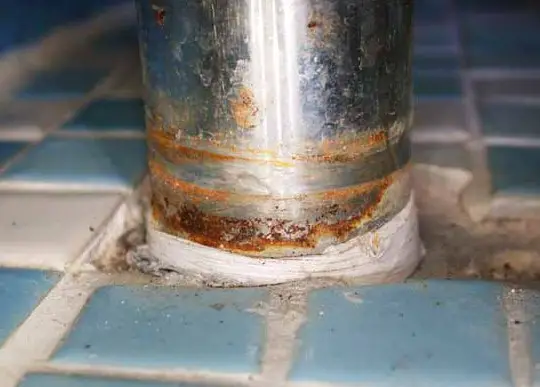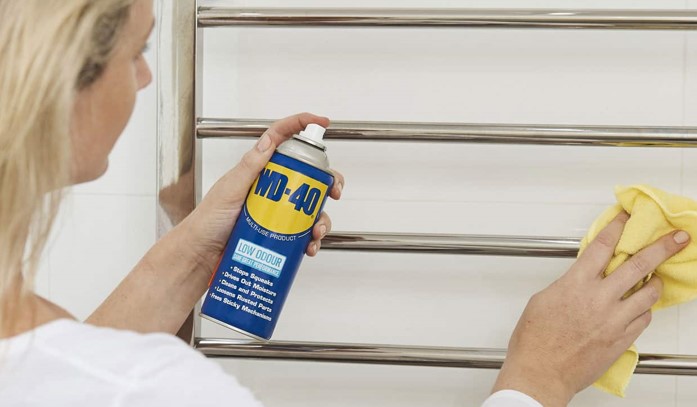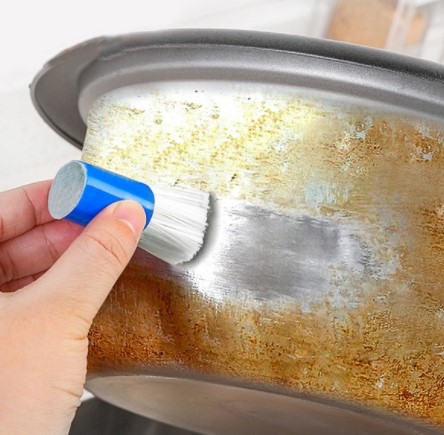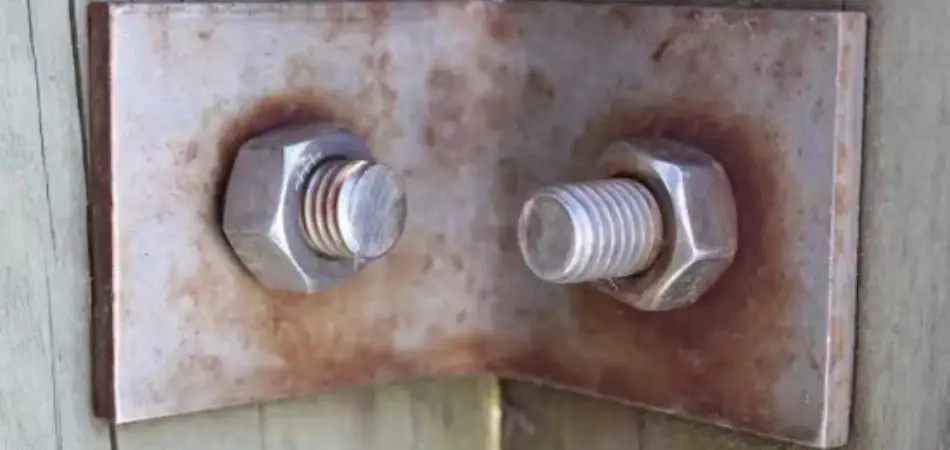Stainless steel is one of the more popular metal alloys used in cookware and non-cookware items. So, stainless steel items like cutlery, sinks, pots, and pans are popular in kitchens worldwide. But, with the wide range of applications of stainless steel, does stainless steel rust?
Yes, stainless steel can rust. Stainless steel rots due to rust, which occurs from exposure to air, moisture, or acids. If one is not careful when cleaning stainless steel, aggressive substances can damage the protective layer, causing rusting to occur more quickly.
Many people are under the impression that since it is called stainless steel, it is completely stain-proof and can’t possibly rust. However, steel contains iron in its chemical composition, enabling steel to rust when exposed to certain external factors.
Therefore, you need to do all that is required to maintain and protect your stainless steel from rust. Again, you can read further to get more information on this.
Contents
What Can Cause Stainless Steel To Rust?
Now you know that certain factors can make your Stainless Steel rust, but what are they? These conditions will affect the corrosion resistance of your Stainless Steel and you need to check it out for them.

Low chromium content
The durability of Stainless Steel can be determined during the manufacturing process, therefore it is important you know the composition of the Stainless Steel you will need to use. Stainless Steel that has low chromium content will rust faster while those with more of it are more likely to last longer.
High Ferrous composition
The percentage of iron in the composition of Stainless Steel is another strong factor that decides the durability of your Stainless Steel. Iron is very reactive with oxygen and therefore forms oxides easily which will in turn cause rusting. High-quality Stainless Steel is very low on ferrous content, therefore, minimizing the chances of oxidation to further enhance the durability of the Stainless Steel.
Saltwater
Saltwater is very corrosive and is the bane of most metals. Constant exposure to saltwater will do considerable damage to the durability of your Stainless Steel. Saltwater eats into metals 10 times faster than normal water and is something you will need to protect your Stainless Steel from if you care about its durability.
Chlorinated environment
Environments rich in chlorine will corrode Stainless Steel easily. Places such as swimming pools are highly chlorinated and you will have to take extra cautions if you reside or work with your Stainless Steel in such an environment. This is because chlorine is a highly reactive electronegative element that reacts with metals a lot faster and easier than most other elements. Therefore, to prevent the drastic corrosion of your Stainless Steel, you will need to steer clear of those kinds of environments.
Scratching
Another major reason Stainless Steel rust is scratching. This bores holes and marks on the Stainless Steel thereby making the exposed area much more vulnerable to oxidation. When this happens, the rust will attack another area of the Stainless Steel, therefore, spreading the rust. Using manufacturer-designed cleaning aids will reduce this significantly and also taking note of the direction of the grains will help you prevent scratching the Stainless Steel.
How Do You Keep Stainless Steel From Rusting?

Coat the Stainless Steel
A good coating can do the magic effectively. It will form a protective barrier between the Stainless Steel and the corroding agent which the agent will need to attack first before reaching it. There are different forms of coating, you can use oil-based or water-based ones.
Use petroleum-based sprays
Using petroleum-based sprays like the WD-40 will curb rusting and further protect the Stainless Steel. It mainly serves to remove scratches and marks on the Stainless Steel and also prevent them in the future. It is advised that you wash with soapy water immediately after use if the Stainless Steel is used in the kitchen.
Avoid leaving water on the Stainless Steel
Standing water will act against the chromium oxide on the Stainless Steel that prevents it from rusting. It does this by preventing the formation of chromium oxide and also further exposes the Stainless Steel to moisture which can accelerate the rusting process. Therefore to nip this in the bud, you will need to wipe out any standing water on the Stainless Steel.
How Can I Remove Stainless Steel Rust?

Use phosphoric acid
Phosphoric acid is very efficient in dissolving rust which is iron oxide while leaving the Stainless Steel unharmed. It does not react with chromium or chromium oxide, nor does it affect nickel and the other components of the Stainless Steel. This is why it is one of the best methods to get rid of the rust on your Stainless Steel whilst still maintaining its original form. However, some forms of iron oxide will not budge when treated with phosphoric acid and this is where you need the help of a professional.
Acetic acid
Though this is a bit slower than the phosphoric acid when treating rusts, it is however the better option if the rust has eaten deep into the fabric of Stainless Steel. Once the rust is gone, use deionized water to clean the Stainless Steel properly to ensure that no trace of the acid remains.
To Conclude…
Stainless Steel as a steel alloy is highly resistant to corrosion and will not rust easily. Does Stainless Steel rust? Yes, it will if carelessly taken care of but it will serve its purpose of durability if you do your part and keep it away from factors that hasten its corrosion.
Therefore, it is worthy to note that the quality of the Stainless Steel will determine its longevity, however, what you expose it to plays an equally important role so that it does not rust.


